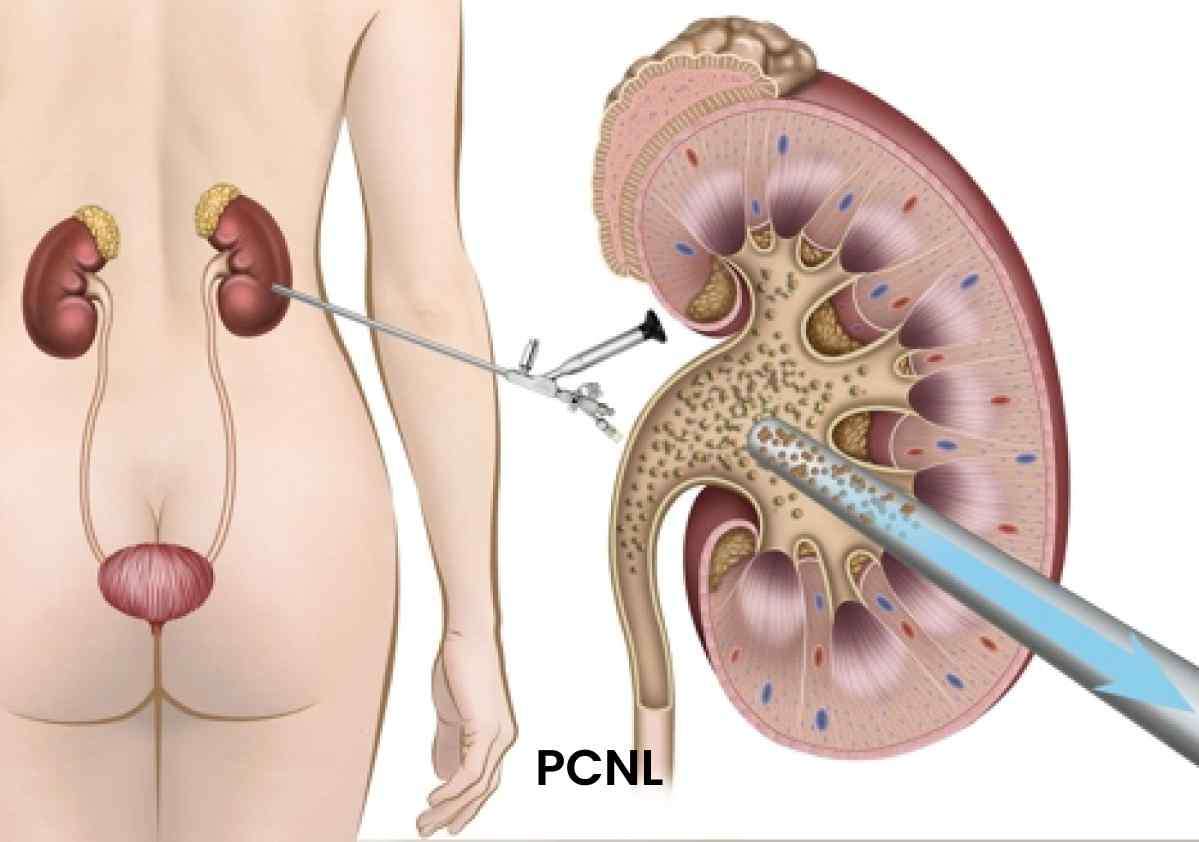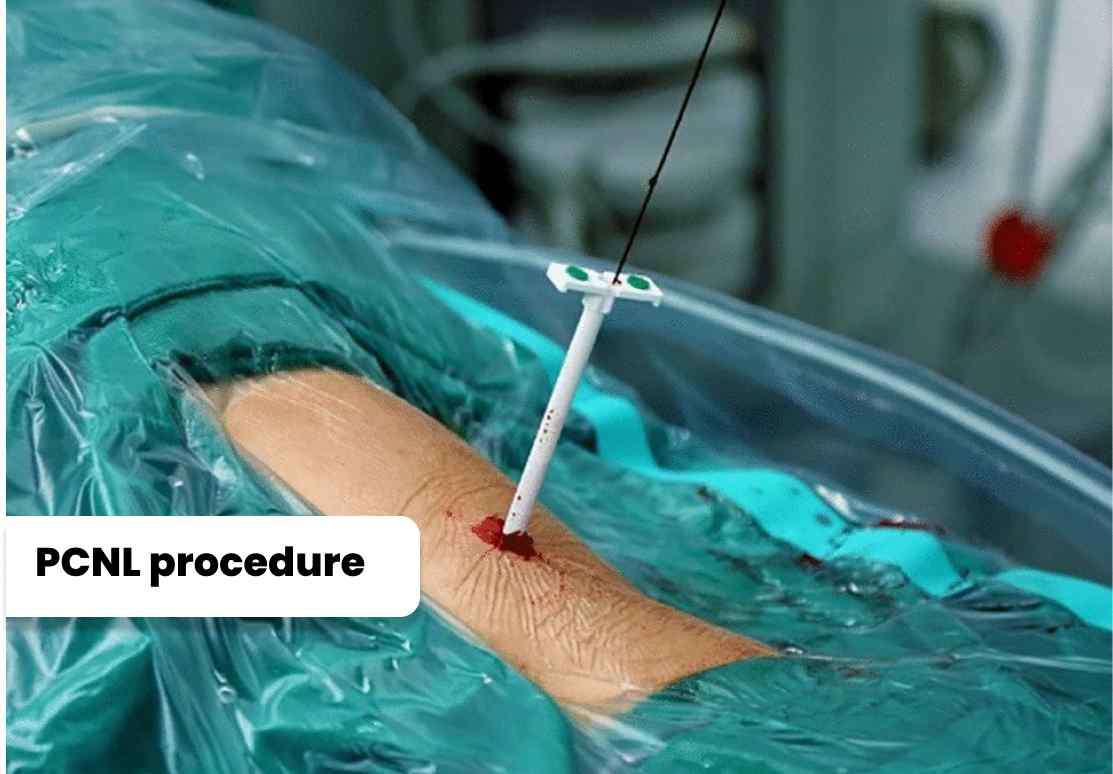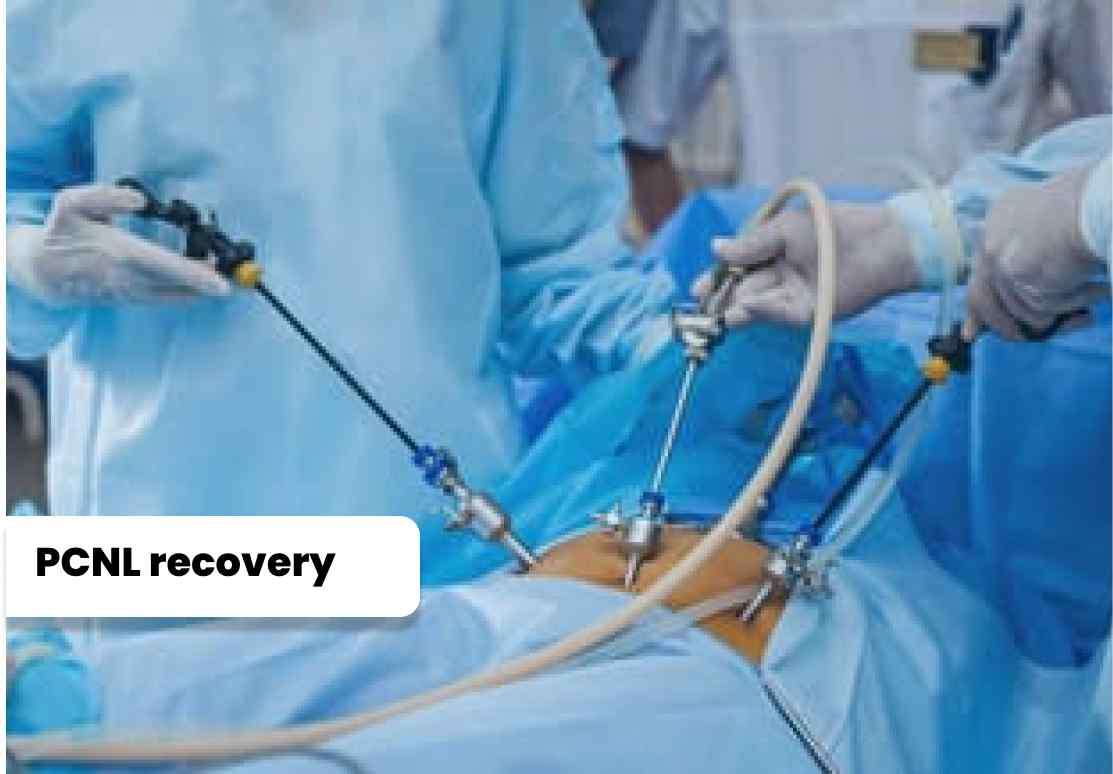Kidney stones can cause excruciating pain and discomfort, impacting the quality of life for those affected. Fortunately, medical advancements have led to the development of various treatments, one of which is Percutaneous Nephrolithotomy (PCNL).
PCNL, also known as percutaneous nephrolithotomy, is a minimally invasive surgical procedure used to remove large kidney stones. It involves accessing the kidney through a small incision made in the back, allowing direct access to the kidney stones. PCNL is primarily recommended for stones that are larger than 2 centimeters in size or stones that have not responded to other non-invasive treatments like medication or shockwave lithotripsy.

Kidney stones can cause excruciating pain and discomfort, impacting the quality of life for those affected. Fortunately, medical advancements have led to the development of various treatments, one of which is Percutaneous Nephrolithotomy (PCNL).
PCNL, also known as percutaneous nephrolithotomy, is a minimally invasive surgical procedure used to remove large kidney stones. It involves accessing the kidney through a small incision made in the back, allowing direct access to the kidney stones. PCNL is primarily recommended for stones that are larger than 2 centimeters in size or stones that have not responded to other non-invasive treatments like medication or shockwave lithotripsy.
During the PCNL procedure, the patient is placed under general anesthesia to ensure comfort and safety. The surgeon then makes a small incision in the back, usually in the area where the kidney is located. Through this incision, a narrow tube called a nephrostomy tract is inserted into the kidney. Guided by imaging techniques such as fluoroscopy or ultrasound, the surgeon advances specialized instruments through the nephrostomy tract to break the kidney stones into smaller fragments.

During the PCNL procedure, the patient is placed under general anesthesia to ensure comfort and safety. The surgeon then makes a small incision in the back, usually in the area where the kidney is located. Through this incision, a narrow tube called a nephrostomy tract is inserted into the kidney. Guided by imaging techniques such as fluoroscopy or ultrasound, the surgeon advances specialized instruments through the nephrostomy tract to break the kidney stones into smaller fragments.
One of the advantages of PCNL kidney stone is its high success rate in treating large kidney stones effectively. It offers a minimally invasive alternative to open surgery, resulting in shorter hospital stays and quicker recovery times. The procedure also allows for the removal of stones that may not respond to other treatment methods, thereby reducing the risk of complications and further stone formation. As with any surgical procedure, PCNL surgery carries potential risks and complications. These may include bleeding, infection, damage to surrounding organs, and urine leakage. However, with advancements in technology and experienced surgeons, the incidence of such complications has been significantly reduced.

One of the advantages of PCNL kidney stone is its high success rate in treating large kidney stones effectively. It offers a minimally invasive alternative to open surgery, resulting in shorter hospital stays and quicker recovery times. The procedure also allows for the removal of stones that may not respond to other treatment methods, thereby reducing the risk of complications and further stone formation.
As with any surgical procedure, PCNL surgery carries potential risks and complications. These may include bleeding, infection, damage to surrounding organs, and urine leakage. However, with advancements in technology and experienced surgeons, the incidence of such complications has been significantly reduced.
The recovery time following PCNL surgery varies from patient to patient. Generally, patients can expect to stay in the hospital for a few days to monitor their condition and manage any discomfort. Complete recovery may take several weeks, during which time the patient may experience pain or discomfort in the back or surgical site. It is crucial to follow the surgeon's instructions regarding post-operative care, including medications, activity restrictions, and follow-up appointments. In recent years, a modified version of PCNL called Mini-PCNL has gained popularity. This technique utilizes smaller instruments, resulting in even smaller incisions and potentially reducing post-operative pain and recovery time. Mini-PCNL may be suitable for certain patients, but the decision on the most appropriate approach is made on a case-by-case basis by the surgeon.

The recovery time following PCNL surgery varies from patient to patient. Generally, patients can expect to stay in the hospital for a few days to monitor their condition and manage any discomfort. Complete recovery may take several weeks, during which time the patient may experience pain or discomfort in the back or surgical site. It is crucial to follow the surgeon's instructions regarding post-operative care, including medications, activity restrictions, and follow-up appointments.
In recent years, a modified version of PCNL called Mini-PCNL has gained popularity. This technique utilizes smaller instruments, resulting in even smaller incisions and potentially reducing post-operative pain and recovery time. Mini-PCNL may be suitable for certain patients, but the decision on the most appropriate approach is made on a case-by-case basis by the surgeon.
|
Serial No |
City |
Minimum Cost (INR) |
Average Cost (INR) |
|
1 |
Mumbai |
1,00,000 |
2,50,000 |
|
2 |
Delhi |
90,000 |
2,20,000 |
|
3 |
Bangalore |
80,000 |
2,00,000 |
|
4 |
Chennai |
75,000 |
1,80,000 |
|
5 |
Kolkata |
70,000 |
1,60,000 |
|
6 |
Hyderabad |
65,000 |
1,50,000 |
|
7 |
Pune |
60,000 |
1,40,000 |
|
8 |
Ahmedabad |
55,000 |
1,30,000 |
|
9 |
Jaipur |
50,000 |
1,20,000 |
|
10 |
Chandigarh |
50,000 |
1,20,000 |
|
11 |
Lucknow |
45,000 |
1,00,000 |
|
12 |
Indore |
40,000 |
90,000 |
|
13 |
Kochi |
40,000 |
90,000 |
|
14 |
Coimbatore |
35,000 |
80,000 |
|
15 |
Bhopal |
35,000 |
80,000 |
|
16 |
Nagpur |
30,000 |
70,000 |
|
17 |
Goa |
30,000 |
70,000 |
|
18 |
Mangalore |
25,000 |
60,000 |
|
19 |
Trivandrum |
25,000 |
60,000 |
|
20 |
Guwahati |
20,000 |
50,000 |
|
Serial No |
Hospital Name |
Address |
Contact Number |
|
1 |
All India Institute of Medical Sciences (AIIMS) |
Ansari Nagar, Aurobindo Marg, New Delhi - 110029 |
+91-11-26588500 |
|
2 |
Post Graduate Institute of Medical Education and Research (PGIMER) |
Sector-12, Chandigarh - 160012 |
+91-172-2747585 |
|
3 |
Sanjay Gandhi Postgraduate Institute of Medical Sciences (SGPGIMS) |
Rae Bareli Road, Lucknow, Uttar Pradesh - 226014 |
+91-522-2668700 |
|
4 |
JIPMER (Jawaharlal Institute of Postgraduate Medical Education and Research) |
Dhanvantari Nagar, Puducherry - 605006 |
+91-413-2296000 |
|
5 |
Sree Chitra Tirunal Institute for Medical Sciences and Technology (SCTIMST) |
Medical College P.O., Thiruvananthapuram, Kerala - 695011 |
+91-471-2524266 |
|
6 |
King George's Medical University (KGMU) |
Chowk, Lucknow, Uttar Pradesh - 226003 |
+91-522-2257450 |
|
7 |
Nizam's Institute of Medical Sciences (NIMS) |
Punjagutta, Hyderabad, Telangana - 500082 |
+91-40-23489000 |
|
8 |
Government Medical College and Hospital (GMCH) |
Sector 32, Chandigarh - 160030 |
+91-172-2601023 |
|
9 |
Institute of Medical Sciences (IMS), Banaras Hindu University (BHU) |
Lanka, Varanasi, Uttar Pradesh - 221005 |
+91-542-2367568 |
|
10 |
Osmania General Hospital |
Afzal Gunj, Hyderabad, Telangana - 500012 |
+91-40-24600146 |
Please Wait..